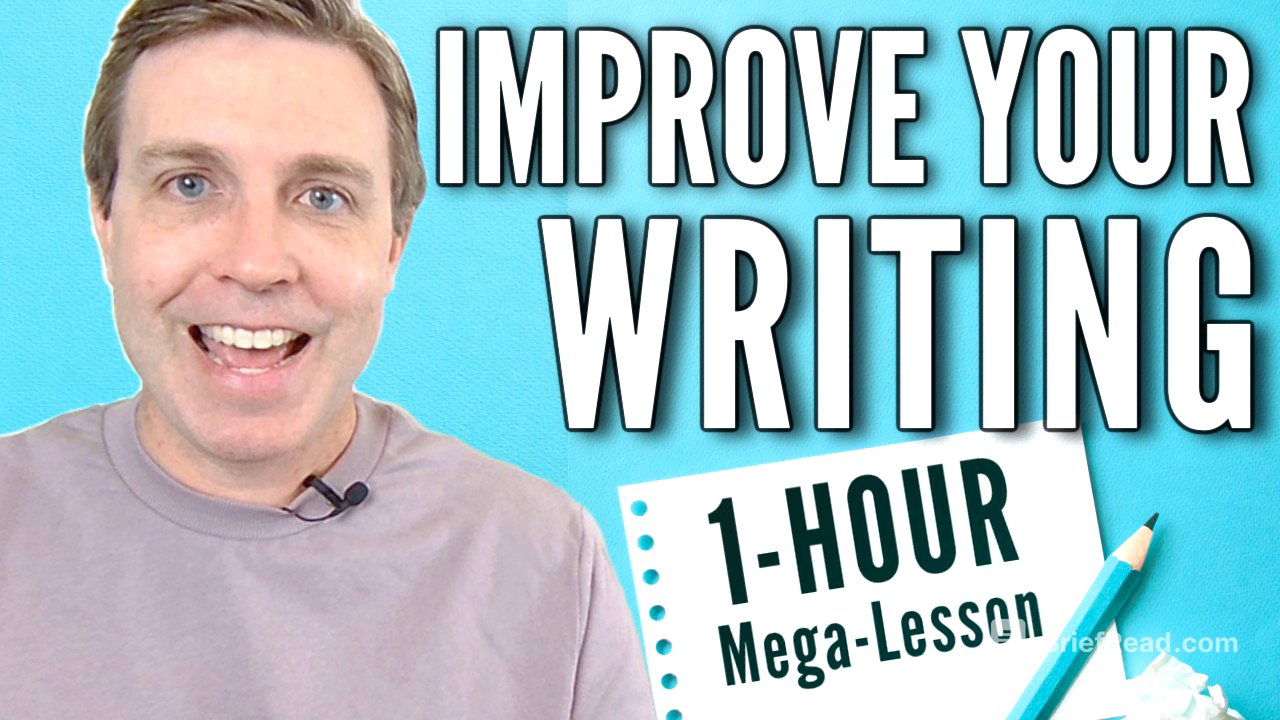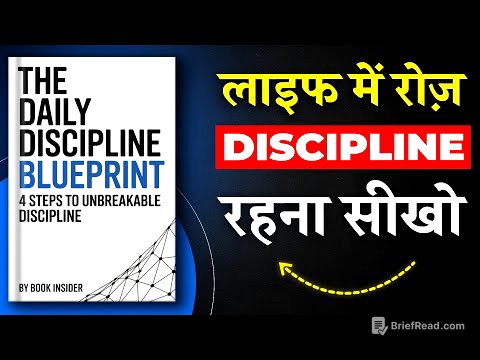TLDR;
This video provides a comprehensive guide to improving writing skills, covering professional writing tips, descriptive vocabulary, academic writing techniques, and common writing mistakes. It emphasizes understanding the purpose and audience, organizing ideas, finding your voice, and mastering sentence structure. The lesson also includes practical exercises to identify and correct common errors, making it a valuable resource for anyone looking to enhance their writing proficiency.
- Professional Writing Tips
- Descriptive Writing with Reporting Verbs
- Academic Writing Improvement
- Common Writing Mistakes Correction
Intro to Advanced Writing [0:00]
The video introduces a comprehensive lesson aimed at developing overall writing skills. It covers various topics, including tips for professional writing, descriptive writing techniques using reporting verbs, improving academic writing, and identifying common writing mistakes. The goal is to provide viewers with the tools and knowledge to enhance their writing proficiency.
13 Tips to Write Professionally [0:43]
The first tip is to understand the purpose of your writing, whether it's narrative, descriptive, expository, or persuasive, as this provides direction. Next, know your audience (boss, teacher, peers, public) to tailor your style, focusing on formal writing to appear professional. Organize your ideas by brainstorming and creating a comprehensive outline to ensure cohesion and unity in your writing. Find your unique voice by using your own words and sentences, being authentic and original. Establish a consistent tone (aggressive, humorous, nostalgic, cheerful, sad) to show your attitude about the topic. Organize paragraphs with a topic sentence, supporting sentences, and a conclusion to effectively convey ideas. Use transition words and phrases to seamlessly move from one idea to the next, enhancing professionalism. Vary your sentence structures (simple, compound, complex, compound-complex) to make your writing more engaging and create a nice rhythm. Keep it simple initially by using familiar vocabulary and focusing on the outline, then refine during proofreading. Proofread effectively by using computer programs and looking for one mistake at a time (punctuation, spelling, word choice). Get others to review your writing for additional feedback. Maintain healthy writing habits by reading and writing regularly to develop your voice and explore different writing purposes.
Descriptive Writing (Ways to Say 'Said') [11:22]
The section focuses on using varied reporting verbs instead of just "said" to enhance descriptive writing. Using different verbs makes writing more descriptive, keeps the reader's attention, and avoids redundancy. Verbs to persuade include "pleaded" (urgent emotional request), "begged" (stronger urgent request), "intreated" (trying hard to persuade), "implored" (sincere emotional request), "beseeched" (asking with great need), "cajoled" (persuading with pleasant talk), "insisted" (saying firmly against disagreement), and "demanded" (forceful request). Verbs to express happiness or excitement include "gushed" (overly positive praise), "cheered" (loud shout of approval), "touted" (repeatedly praising to persuade), "laughed" (smiling and making sounds), "chortled" (laughing with satisfaction), and "giggled" (repeated uncontrolled laughter). Verbs to announce something include "proclaimed" (official positive announcement), "announced" (making something known officially), and "declared" (clear, firm, official public announcement). Verbs to express sadness include "pouted" (showing annoyance), "complained" (saying something is wrong), "sobbed" (crying noisily), "cried" (producing tears), "lamented" (expressing sadness and regret), "sneered" (unkindly showing no respect), "whined" (long, high, sad sound), and "bemoaned" (complaining or expressing sadness). Loud verbs include "shouted" (loud voice in a noisy situation), "exclaimed" (sudden shout of surprise, fear, or pleasure), "bellowed" (very loud shout), "yelled" (shout due to anger or pain), "screamed" (similar to yelled, often for help), and "hollered" (shouting to get attention). Quiet verbs include "murmured" (saying something very quietly), "muttered" (speaking quietly in a low voice, often unwillingly), "mumbled" (speaking quietly and unclearly), and "whispered" (speaking quietly so only those nearby can hear).
Improve Your Academic Writing [26:51]
The first tip is to be concise by stating information clearly and using as few words as possible, avoiding unnecessary words and using action verbs. Organize your paper by creating an outline to structure your writing effectively. Avoid contractions, idioms, and colloquial expressions, as academic writing is more formal. Vary your sentence structures (simple, compound, complex, compound-complex) to avoid choppiness and create a nice rhythm. Use the active voice for clarity, though passive voice may be appropriate in certain contexts like scientific papers. Avoid repetition by using a variety of words and precise language, especially with transition words. Proofread thoroughly, reading both forward to check flow and backward to catch errors, ensuring each sentence is isolated for error detection.
Common Writing Mistakes [40:25]
This section focuses on identifying and correcting common writing mistakes through examples. The first common mistake is subject-verb agreement, ensuring the verb agrees with the subject in number. The second is confusing contractions with possessives, such as "you're" vs. "your" and "it's" vs. "its." Article misuse, involving "a," "an," and "the," is another frequent error. Using the wrong preposition is also common, such as being "interested in" economics rather than "with." Mistakes in verb tense, like switching between past and present tenses incorrectly, are addressed. Comma misuse, including using or omitting commas incorrectly in compound sentences or after introductory phrases, is highlighted. The use of the wrong word, often due to confusing collocations or similar-sounding words like "affect" and "effect," is another area of focus. Finally, the section covers the use of informal language in formal writing, such as idioms and reductions, which should be avoided in professional contexts.








